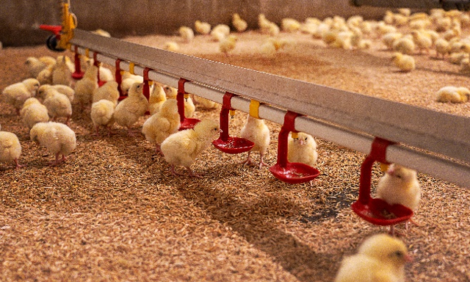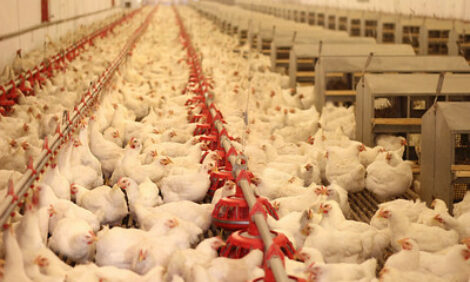



Best practice guidelines for using poultry litter on pastures
By Neil Griffiths, District Agronomist, Maitland - Bulk poultry litter can be the basis of very productive and valuable pasture and agricultural production when used wisely. It also has potential to create human and animal health risks, plus cause dust, smell and water pollution if it is not stored, spread and managed in an appropriate manner.
Summary
These guidelines aim at ensuring that you use poultry litter wisely to optimise pasture production and minimise the risk of problems concerning stock health, stock feeding bans, pollution and the environment.
Poultry litter contains human and animal pathogens, so good hygiene has to be practised when handling litter. Animals must be prevented from gaining access to litter. Care should be taken to prevent poultry litter contaminating fresh produce that would not be cooked prior to eating.
The nutrient content of poultry litter varies. This variability must be reflected in its price compared with other forms of fertiliser. Poultry litter contains the major nutrients nitrogen, phosphorus and potassium, but it is not perfectly balanced for pasture requirements. It does not contain enough nitrogen for grass pastures compared with the phosphorus supplied.
Wise fertiliser use combines nutrient budgeting (i.e. knowing what nutrients are being used and removed from a paddock) with soil testing (to check that the desired soil nutrient levels are being achieved).
Poultry litter is light and will wash off paddocks easily. Take care when storing and spreading poultry litter to prevent it entering watercourses or moving to off-target areas. It may sometimes be possible to plough it into the soil; however, this practice destroys established pasture and increases soil erosion risk.
To continue reading this article please Click Here
Source: NSW Agriculture - May 2003








